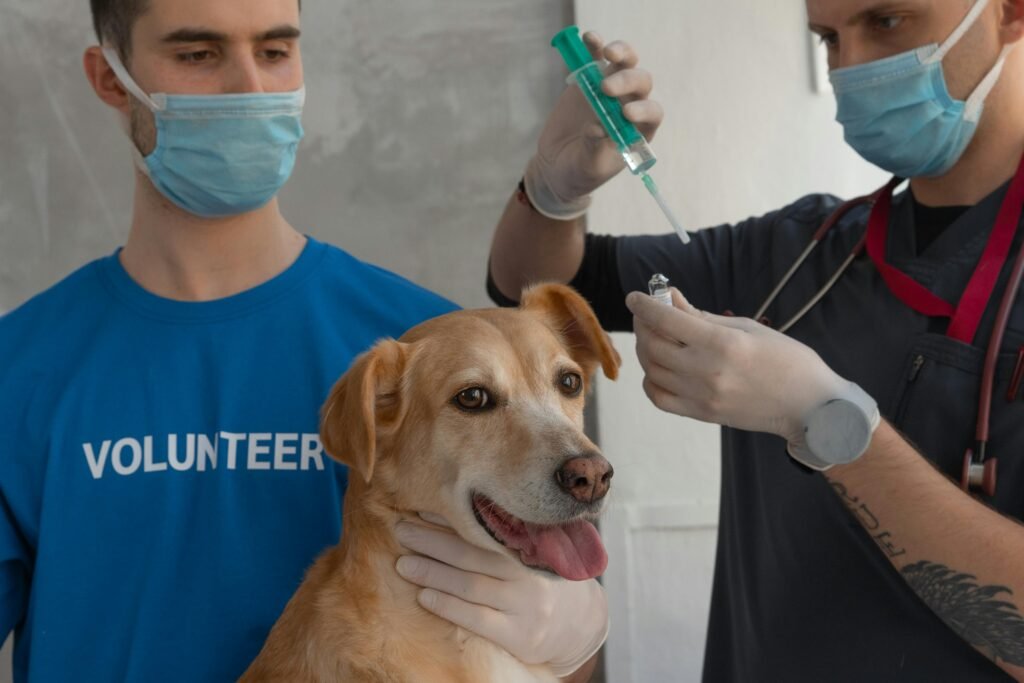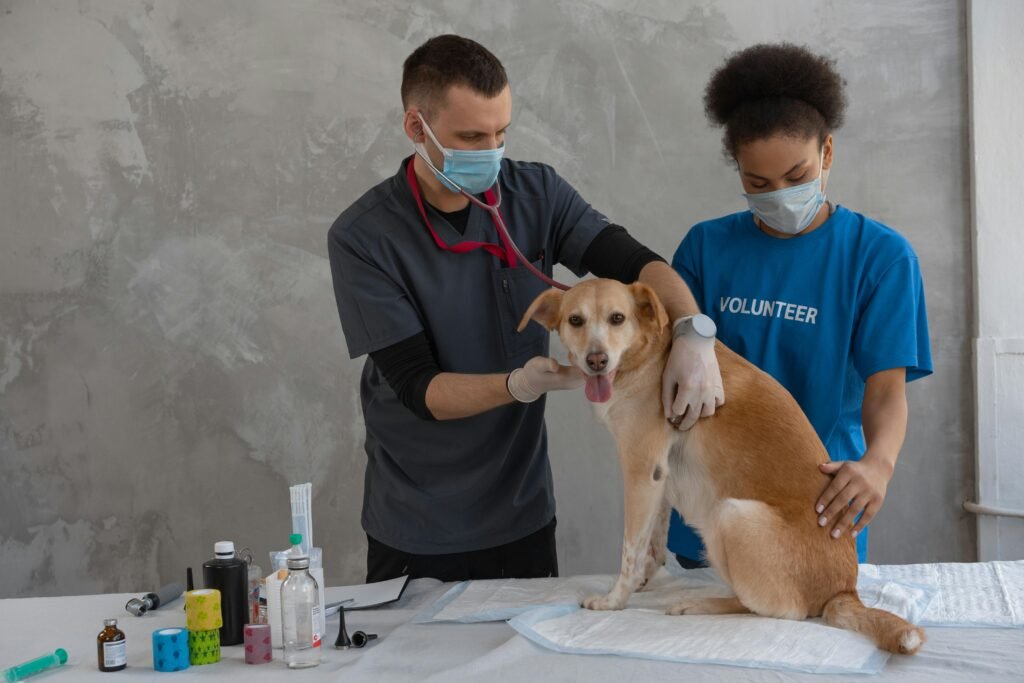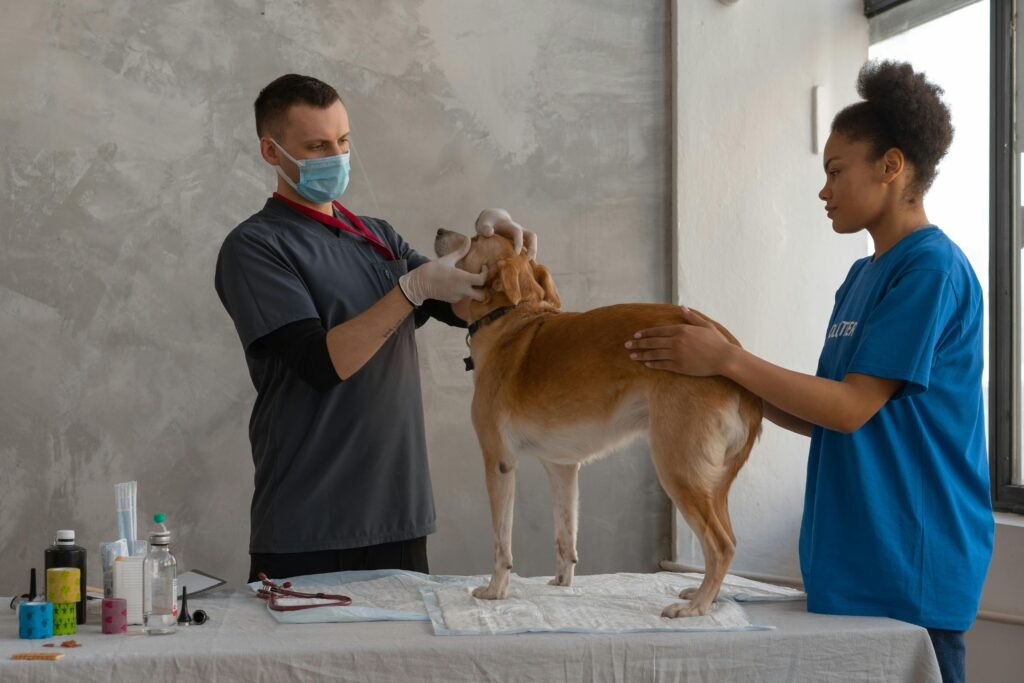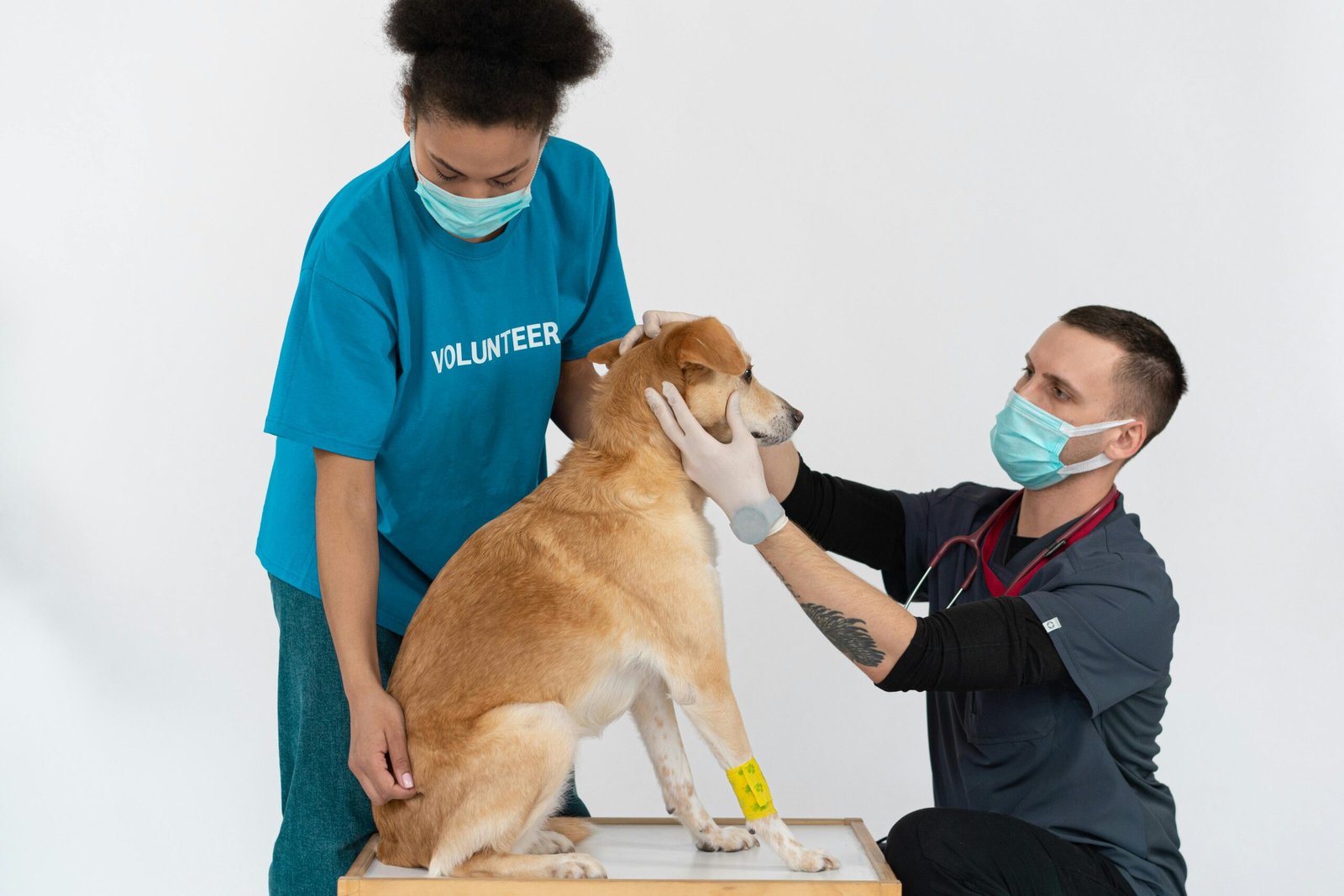How to maintain your furry friend’s health and well-being? Do you keep him healthy by feeding him, keeping him warm, or maybe by bathing or cleaning him periodically?
To tell you the truth, these are essentially for keeping your pet healthy and safe but dog vaccinations are the most crucial thing to grant.

So let’s dive more into dog vaccinations and their main categories to be able to protect our dearest furry friend.
1-Core Vaccinations: The basic and Essential ones
Core vaccinations are considered essential for all dogs, regardless of their lifestyle or geographic location. These vaccines protect against highly contagious and often fatal diseases. The core vaccines typically include:
- Distemper: This virus attacks a dog’s respiratory, gastrointestinal, and nervous systems, leading to severe symptoms and potentially fatal outcomes.
- Adenovirus: This virus can cause respiratory infections and hepatitis, affecting the liver, kidneys, and spleen.
- Parvovirus: A highly contagious virus that attacks a dog’s gastrointestinal system, causing severe vomiting, diarrhea, and dehydration.
- Parainfluenza: This virus contributes to kennel cough, a respiratory infection that can cause coughing, sneezing, and difficulty breathing.
- Rabies: A deadly viral disease that affects the nervous system, causing severe neurological symptoms and ultimately leading to death.
Non-Core Vaccinations: Tailored Protection
These vaccinations are recommended according to your dog’s lifestyle, geographic location, and exposure risk depending on your veterinarian’s opinion. These vaccines can provide additional protection against specific diseases, such as:

- Leptospirosis: A bacterial disease spread through contaminated water and soil, affecting the kidneys and liver.
- Bordetella: A bacterial infection that causes kennel cough, especially in dogs that frequent boarding facilities or dog parks.
- Lyme disease: A bacterial disease transmitted by ticks, causing joint pain, fever, and kidney problems.
- Canine Influenza: A viral respiratory disease that can cause coughing, sneezing, and fever.
Vaccination Schedule: A Timeline for Protection
Of course, there is no such thing as a perfect timeline for Vaccination Schedules for all kinds of dog breeds, ages, or geographic places but we will deal here with the majority of all breeds.
most puppies receive their initial series of vaccinations between 6 and 16 weeks of age. Booster shots are typically administered every one to three years, depending on the specific vaccine.
Here’s a general vaccination schedule for puppies:
6-8 weeks: Initial round of core vaccines (DHPP) and possibly parainfluenza.
10-12 weeks: Second round of core vaccines and parainfluenza.
14-16 weeks: Third round of core vaccines, parainfluenza, and rabies.
1 year: Rabies booster and potentially other boosters depending on your veterinarian’s recommendations.
Annual or triennial booster shots are typically recommended to maintain immunity for adult dogs.

visiting Your Veterinarian
It’s crucial to consult with your veterinarian to determine the most appropriate vaccination schedule for your dog. They will consider your dog’s needs, lifestyle, and geographic location to recommend a personalized vaccination plan.
Additional Tips for Optimal Dog Health:
- Vet Checkups: organize regular veterinary checkups to monitor your dog’s health.
- Proper Nutrition: Ensure your dog receives a balanced and nutritious diet to support their immune system.
- Regular Exercise: Keep your dog active and healthy with daily exercise.
- Preventive Care: Protect your dog from parasites like fleas, ticks, and heartworms with appropriate preventive medications.
- Safe Socialization: Introduce your dog to other dogs and people in a controlled and positive manner to promote good behavior and socialization skills.


